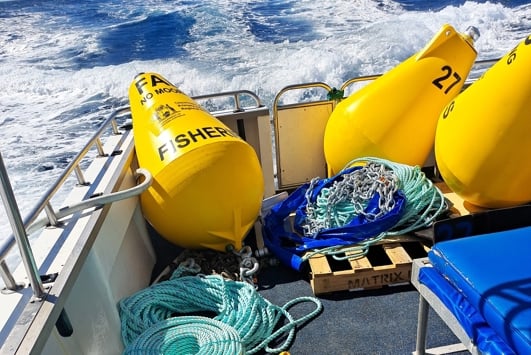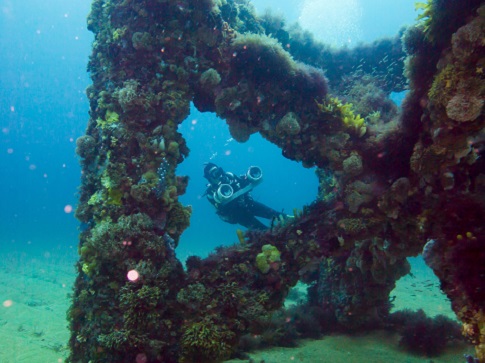
Artificial reefs
Artificial reefs are purpose-built structures installed in aquatic environments for the purpose of creating, restoring or enhancing habitat for recreational fishing. Artificial reefs mimic the characteristics of natural reefs by creating new habitats and providing shelter, feeding opportunities and varied changes to the water column.
The department has collaborated with Recfishwest to install a number of purpose-built artificial reefs around WA.
Learn more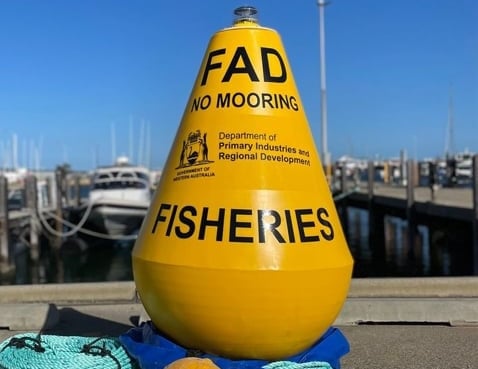
Fish aggregating devices
Fish aggregating devices (FADs) are buoys or floats that are moored to the ocean floor using an anchor system. They are designed to attract baitfish which use the FAD as a shelter. Baitfish entice pelagic fish such as mahi-mahi, tuna, wahoo and marlin to gather around the FAD and can be caught by recreational fishers.
Learn more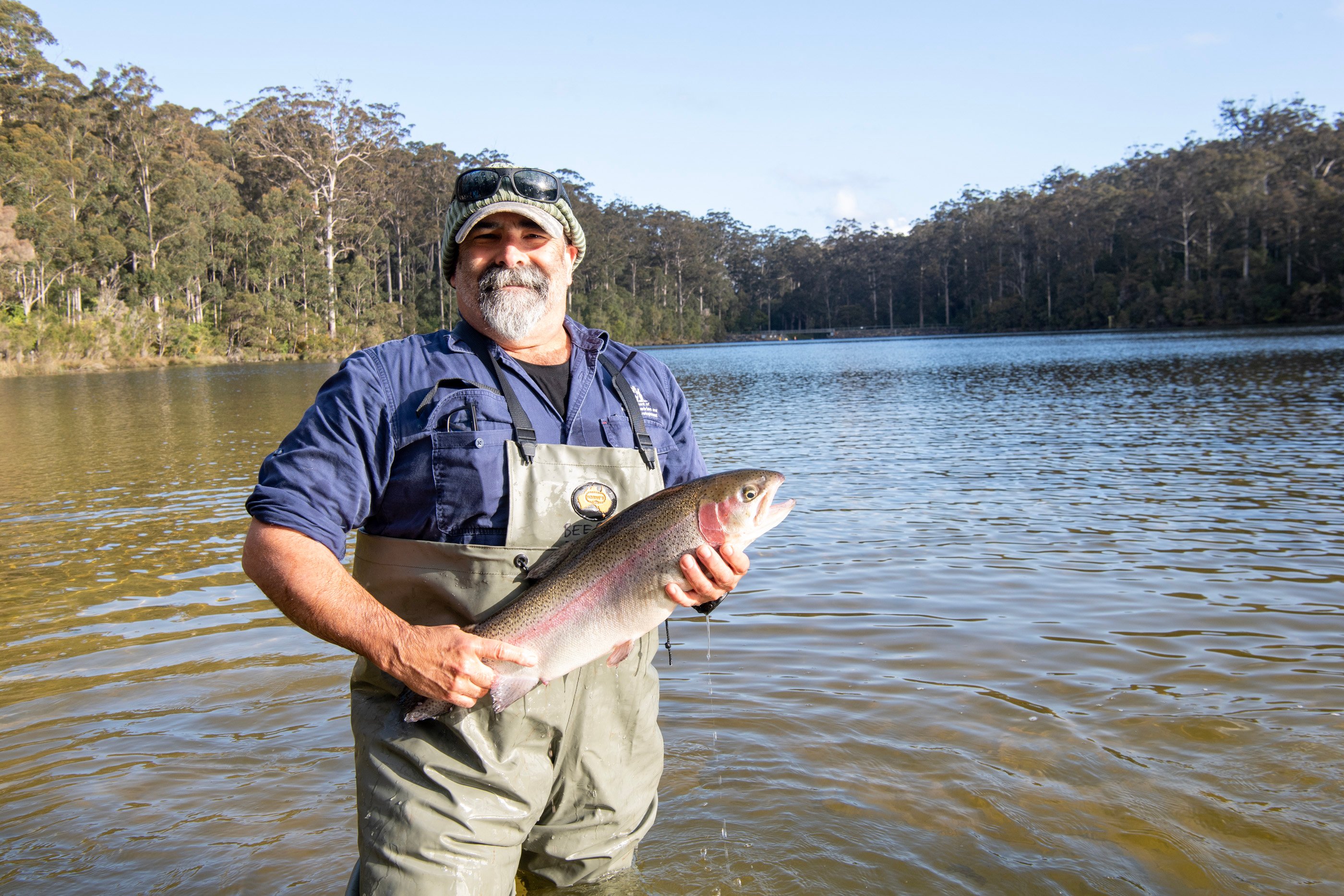
Trout stocking numbers
The department's annual trout stocking program supports sustainable freshwater fishing across the South West.
Learn moreAs part of the 2023 west coast demersal scalefish recovery package, the state government has invested an additional $10 million to fund key initiatives, including an expanded fish aggregation device (FAD) program and expanded snapper stocking program.
The peak body representing recreational fishing interests in WA, Recfishwest, advises and represents the interests of recreational fishers and provides advice to the WA Government. The department provides Recfishwest with annual funding equivalent to 15% of recreational licence contributions (including charter) from the previous year.
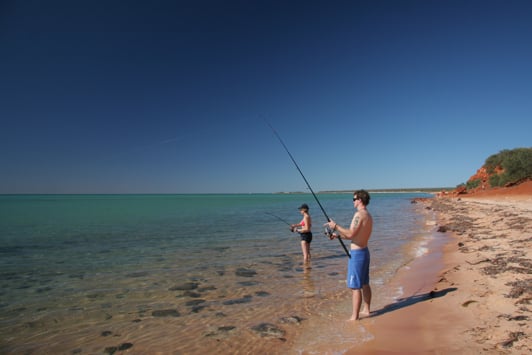
Recreational fishing guides
Guides are available to help fishers understand how to sustainably fish in many popular fisheries including abalone, crabbing, marron, net fishing, sea urchin, freshwater angling and rock lobster.
View the guidesDPIRD completes a range of scientific programs to gather data about recreational fishing. These programs help us assess fish stocks, research key species, and understand recreational fishing activity around WA.
Recreational fishing surveys, including boat ramp surveys and logbook surveys, provide data about what fishers are catching and in which bioregions. Recreational fishers can also contribute to the sustainable management of WA’s aquatic resources by participating in the department’s citizen science projects, including FishCatchWATM and Send Us Your Skeletons. The department’s science programs wouldn’t be possible without the ongoing support and involvement of thousands of recreational fishers every year.
Science programs
The management of recreational fishing in WA is an always evolving process. DPIRD continuously revises fisheries management to adapt to pressures on fish stocks. These pressures may be from changes in human behaviour or environmental variations.
DPIRD’s adaptive management ensures key fisheries are well-managed and supported so we have fish for the future. These can include bag limit changes, area and seasonal closures and gear restrictions.
The need for management change is based on science and developed in consultation with the recreational, commercial and charter fishing sectors.
DPIRD’s compliance and education officers support recreational fishing by educating recreational fishers and the community about sustainable fishing and enforcing recreational fishing rules. A combination of highly visible patrols and education programs with covert surveillance techniques are used to maximise compliance effectiveness.
Fishers and the wider community can help support fishing sustainability by reporting any suspicious fishing activity through FishWatch.
The Minister for Fisheries reinvests 25% of recreational fishing licence fees from the Recreational Fishing Account to the Recreational Fishing Initiatives Fund (RFIF). The RFIF was established by the state government, and provides opportunities for individuals, research institutions, clubs, organisations or community groups to apply for funding to complete projects and research that directly benefit recreational fishing.
Since 2010, more than $25 million has been allocated to the RFIF and supported over 120 projects, including small community based recreational fishing projects, fish stocking, artificial reefs, habitat restoration, research programs, safety initiatives and supporting recreational fishing opportunities for people with disabilities.
More information about the RFIF can be found on the Recfishwest website.
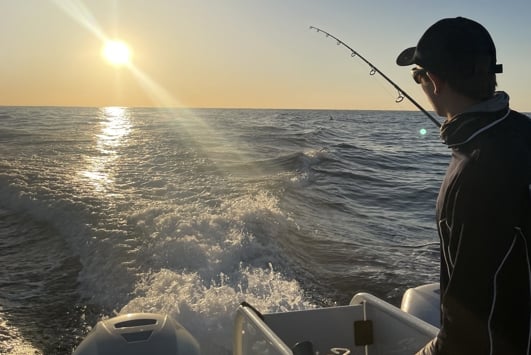
Catch! Newsletter
Subscribe to the Catch! e-newsletter for all the latest information for Western Australian recreational fishers including seasonal openings and closures, fisheries research initiatives and findings, and helping with citizen science projects.
Subscribe to the Catch! Newsletter
